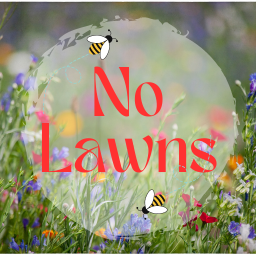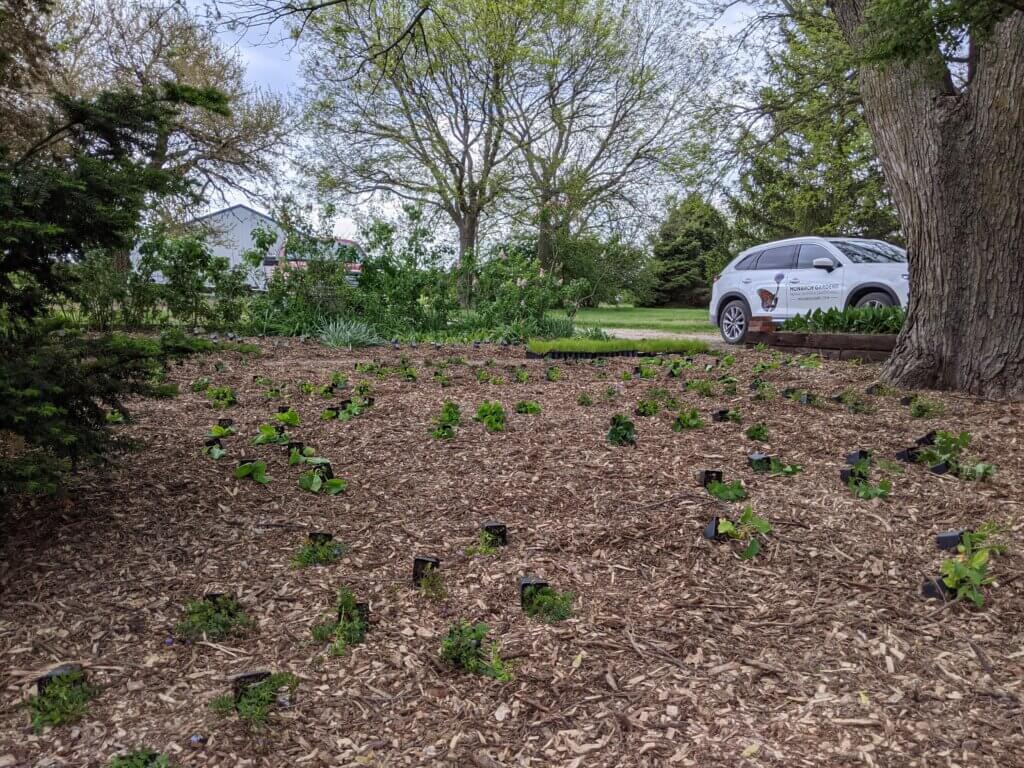I see no mention of GHG. Tree services often cannot find a use for the trees they cut down (which is strange because you would think they could mill it and sell the lumber). In the end, they dump trees they were paid to remove into landfills. When trees rot they release methane gas, which is 10× worse than CO₂.
I bring this up because wouldn’t wood mulch have the same problem?
People make things so complicated… Go to the nearest patch of relatively undisturbed native forest. Look at what is on the ground. That is what you should emulate.
This op ed goes overboard to make a point. Some of their statements don’t match my experience
I have heavy clay soil and usually get sporadic but reasonably heavy rain. My soil needs a lot more organic matter. Mulch is a much quicker way of accomplishing that than dense plantings. They claim mulch takes years to break down, but in my climate, all but the top crust of untreated mulch nearly breaks down in a single season. I have garden beds with and without hardwood mulch. The beds with mulch tolerate heat waves notably better than the ones without. I have had beds that languished for years that then grew much better after applying mulch.
That said not all mulch is the same. I used chipdrop to get untreated hardwood mulch. That breaks down much faster than dyed cedar mulch that landscaping crews around here use. They want mulch to maintain a certain aesthetic and not break down, I want my mulch to decompose.
The truth is gardening techniques really depend on what you’re growing, where you’re growing, and what your soil is like. The best thing to do is try out a variety of things and see what produces results you like. That and to make friends with people who have more experience gardening in your area than you do.
I will mock bright red mulch valcanos that create girdling roots around all the improperly planted trees with anyone who will listen, but I won’t agree with a no mulch ever stance.
I think you definitely have to take your location and climate into account. I liked the different prescriptive but for where I live personally, mulch is just fine.
This does seem to be hyperbole but I would say we should use less wood mulch. (and like you mentioned use something like chipdrop which will actually decompose. It doesn’t help that words like mulch have so many different meanings that it sometimes means nothing. I have found that mulching around plants with straw or hays has been the best so far. Gives a clean look, supresses weeds, and decomposes so fast.
deleted by creator
The article seems to assume it’s use as a weed killer. In some countries (e.g. Australia) it is used to prevent soil evaporation. Is that no longer recommended?
Soil evaporation? You mean to keep soil from drying out? Or do you mean to prevent soil eroding?
The article discusses how it can actually contribute to soil drying out.
I would think it would be worse for erosion as well, given that it prevents roots from growing and roots are the best erosion prevention there is.
Protecting soil from drying out. Exposed to the sun in summer, the soil gets so dry it becomes hydrophobic and refuses to take up water. A layer of woodchip prevents the soil bactreria from being killed and creates a thin water-catching environment that retains water way longer.
The point made in the article: Except wood mulch soaks up the water itself and then it evaporates from the wood chips and lots of water never makes it to the soil.
Maybe that works if you live in an area that gets so much rain it can still soak through to soil after soaking the mulch, but in a lot of the world during summer, that won’t be the case.
I can’t speak to soil bacteria, but I’m pretty sure ecosystems have evolved to have healthy soil without requiring wood chip mulch (leaf cover in the winter is a different story, of course, so don’t rake/blow your leaves!)
The point in the article assumes you are solely reliant on rain for watering your plants. Where I live it doesn’t rain for like three or four months in the summer, so that argument is invalid. I use irrigation in my orchard every couple of weeks to deeply soak the area around a tree. The wood chips around the trees do help prevent the soil from drying out because they keep it cool. It takes heat energy to evaporate water. And since the mulch blanket keeps the soil cool I only have to water the orchard once every two or three weeks.
You’re also talking about orchards and tomatoes in a “no lawns” community. I think you’re a little lost
Well, I didn’t mention tomatoes. And I’m slowly replacing my grass with a sort of food forest. It may not be native wildflowers, but I don’t think I’m lost.
Sorry it was someone else who mentioned tomatoes
I just know that my tomatoes started doing much better after I covered the surrounding soil in mulch.
I’m pretty sure it’s written by someone not in your climate. I mostly posted cause I figured it would give a good discussion and it sure has!
I think they are correct for certain areas of the world. If you live somewhere that is very humid and gets tons of rain from heavy storms all summer, it actually can help your garden plants survive and not drown from surface pooling
Yeah I agree with that.
Where I’m at, it’s a life saver to retain moisture in the soil, as we’re very dry and windy. Without it, plants need watering much more often!
Same here actually. I liked the take on looking at it a different way though
Try straw or hay. Its wonderful but last way less long.
YOU KEEP WOOD MULCH’S NAME OUT OF YOUR FUCKING MOUTH YOU FILTHY TURD. WOOD MULCH IS BETTER THAN YOULL EVER BE. AT EVERYTHING. HOW FUCKING DARE YOU!?
I agree with everything in this article. I see wood mulch as a decoration, nothing more.
It’s a huge fire hazard in forest fire prone areas. Basically like surrounding a house with fire starter.
All depends on your climate. I haven’t mowed most of my backyard in two years, can’t even walk back there. That’s far more of a fire hazard than were it covered in mulch.
> implying they know what i think
(it’s nothing. i think nothing.)
Why mulch ? Whatever climate zone you’re in, plant local plants in your garden, lean back and enjoy.




